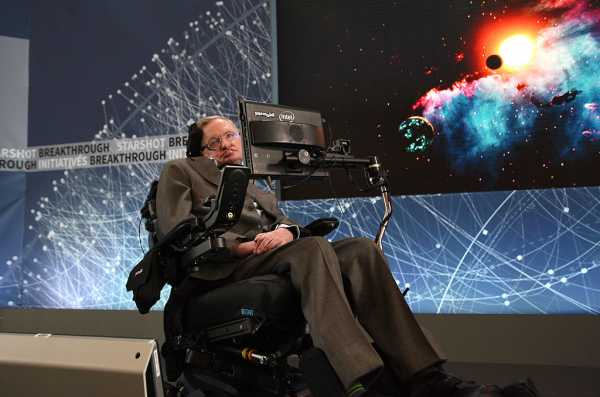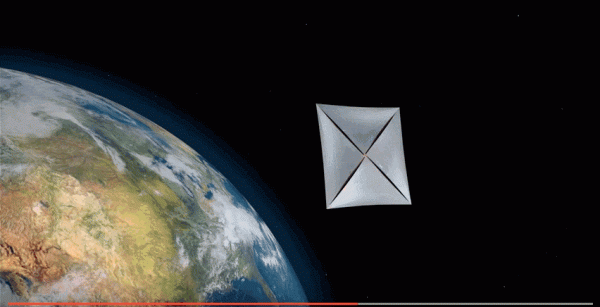
Theoretical physicist Stephen Hawking died Wednesday at the age of 76 at his home in Cambridge, England. The scientific icon and cultural figure made tremendous contributions to physics and cosmology, deepening and expanding our understanding of the universe, and the lifecycle of black holes.
He also made grave warnings about the future of the planet.
In 2017, he set a deadline for humanity to save itself. Within the next 100 years, he warned, we need to colonize Mars and other planets. If we don’t, we may not survive climate change, disease, and other versions of doom we’re bound to inflict on ourselves this century.
Hawking’s pessimistic take on humanity wasn’t new. But in a talk delivered by Skype at the Starmus science and art festival in June 2017, the super-famous scientist and author made the case more urgently in the wake of President Donald Trump’s decision to pull the United States out of the Paris climate agreement on June 1.
“Unlike Donald Trump, who may just have taken the most serious and wrong decision on climate this world has seen, I am arguing for the future of humanity and a long-term strategy to achieve this,” Hawking said
“We have given our planet the disastrous gift of climate change … When we we have reached similar crises there has usually been somewhere else to colonize … But there is no new world, no utopia around the corner,” he said. “We are running out of space, and the only places to go to are other worlds.”
If you share Hawking’s faith in the human imagination and drive to explore, this may have some appeal. What if we could rekindle the excitement of the early days of space travel in the 1960s and build a new space program to send anyone who wanted to go?
Hawking had some concrete goals to guide us going forward. If we’re going to make his timeline for building new civilizations before we perish, here’s what we need to do, he said:
If these ideas sound familiar, it’s because billionaires like Elon Musk and Richard Branson, who are deeply invested in spaceflight, have been pushing them too. Some of Hawking’s fellow physicists and astronomers also agree we could use an exit strategy. And there’s now a small but growing community of aspiring space colonists prepping for life on Mars. (To be clear, Mars, for now, looks like a pretty deadly place.)
In 2016, as Vox’s Brian Resnick reported, Hawking, along with a Russian billionaire and Facebook’s Mark Zuckerberg, concocted a scheme to build and send spacecraft the size of postage stamps to Alpha Centauri, the second-closest star to Earth, some 4.37 light-years away.
The plan, called Breakthrough Starshot, is ambitious, to say the least. A huge number of engineering hurdles would need to be cleared over the next couple of decades to make a launch possible. And it’s just a tiny example of what we’d need to actually decamp to other planets and the moon.

You could also view Hawking’s call to move on from Earth as totally heedless, as an encouragement to give up on solving the problems we’ve created for ourselves.
Timetables like Hawking’s are particularly troubling to climate scientists and others dedicated to fixing planet Earth right now. If we start looking for our salvation outside our solar system, we may be dissuaded and distracted from reducing greenhouse gas emissions to avert catastrophic climate change, they fear. We might also divert precious funds away from those efforts (arguably, we already are).
As Katherine Hayhoe, a renowned climate scientist at Texas Tech University and another Starmus speaker, tweeted:
Hawking admits there are risks to the kind of audacious space exploration he’s calling for. We don’t know what or whom we’ll find when we venture further afield.
But, he said in 2017, with just a twinge of envy, “If there are beings on Alpha Centauri, they remain blissfully unaware of the rise of Donald Trump.”
Further reading
— Why Stephen Hawking is more afraid of capitalism than robots
— A neurologist explains how she helped Eddie Redmayne play Stephen Hawking
— Here’s Joey Stromberg on why space tourism is going to be utterly disappointing
Sourse: vox.com






